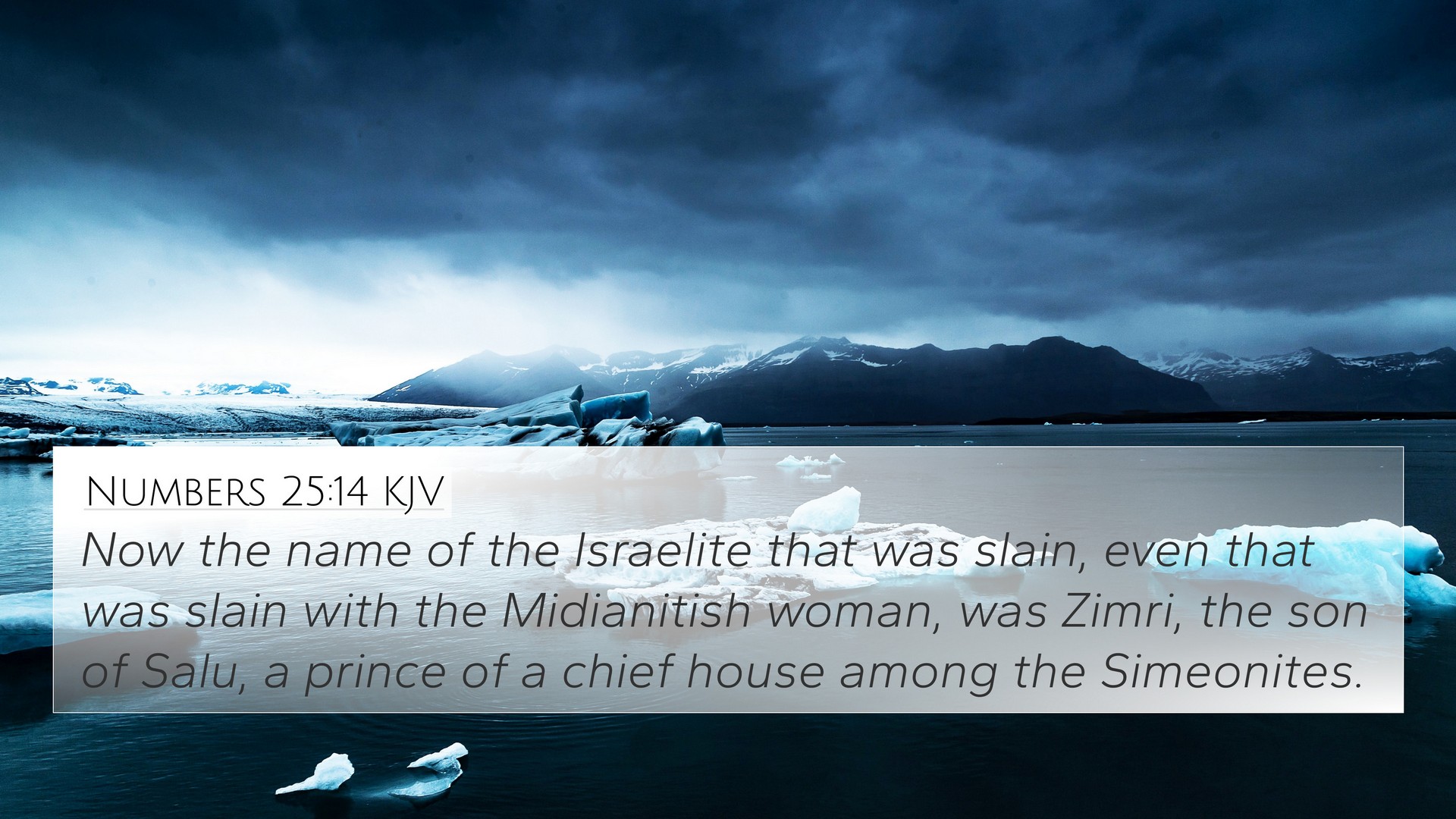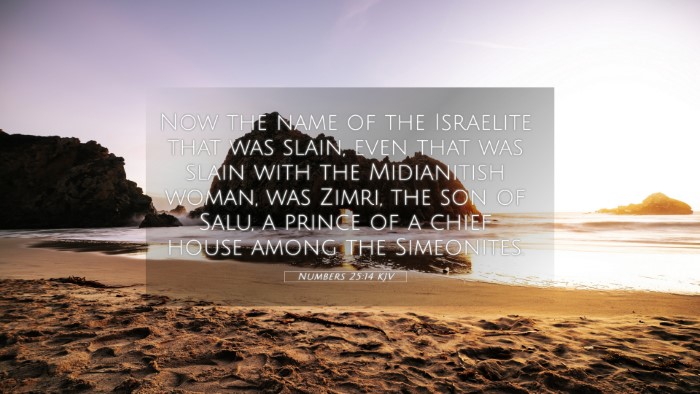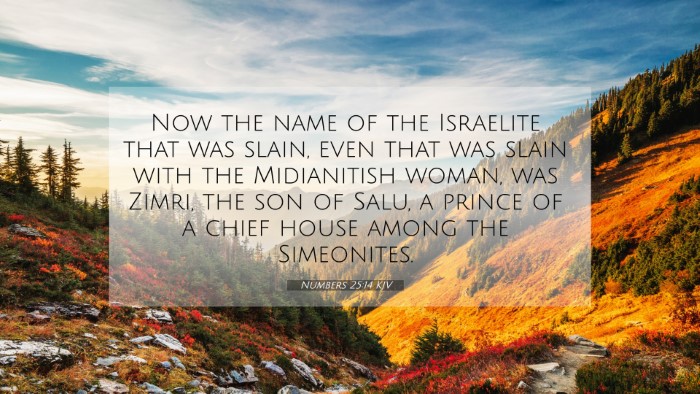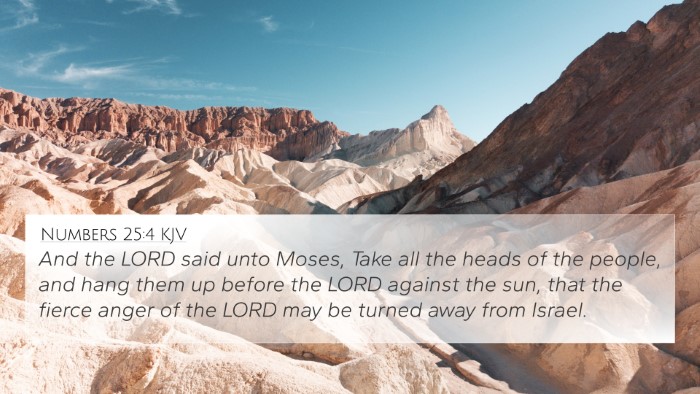Understanding Numbers 25:14
Numbers 25:14 states: "Now the name of the Israelite who was killed, with the Midianite woman, was Zimri the son of Salu, a leader of a father's house among the Simeonites." This verse highlights a pivotal moment in Israel's history, showcasing not only the consequences of sin but also the presence of leaders within the Israelite community. Below is a comprehensive analysis and understanding sourced from notable public domain commentaries.
Verse Context
This incident occurs during Israel's encampment near Moab, where they were led astray into idolatry and immoral practices. Zimri's actions represent not only personal sin but the broader theme of corruption within the community, which had dire repercussions as outlined in previous chapters.
Commentary Insights
- Matthew Henry:
Henry reflects on the severity of Zimri's actions, noting that his open defiance illustrates the lack of fear towards divine judgment among the Israelites. His position as a leader intensified the gravity of his sin, as leaders are held to a higher standard. This raises the question of accountability within leadership roles in spiritual matters.
- Albert Barnes:
Barnes emphasizes the identity of Zimri as a Simeonite leader, underscoring the impact of his actions on the tribe of Simeon. He also connects this incident to the larger narrative of Israel's struggles with temptation and fidelity to God. Zimri’s association with a Midianite woman symbolizes a breach of covenant relationships that was condemned throughout biblical texts.
- Adam Clarke:
Clarke delves into the geographical and historical context of the Midianites and their relationship with the Israelites. He notes how intermarriage and cultural exchanges often led to moral decay, emphasizing the theme of separation from ungodly influences. Clarke highlights that Zimri's act of bringing a Midianite woman into camp was not merely personal sin but a catalyst for national judgment.
Thematic Connections
This verse connects to several major biblical themes, including:
- Sin and Consequences: The account of Zimri serves as a cautionary tale about the repercussions of sin within a community.
- Leadership and Responsibility: The actions of leaders have far-reaching implications on the people they guide.
- Judgment and Repentance: Following this incident, God’s judgment comes swiftly, reminding readers of the necessity of repentance and alignment with God’s covenant.
Cross-References
Below are related Bible cross-references that enhance our understanding of Numbers 25:14:
- Numbers 25:1-3 – The context of Israel’s entanglement with Midianite women.
- Exodus 34:15-16 – God's command against intermarriage with foreign nations.
- Deuteronomy 7:3-4 – Reiteration of the necessity to avoid idolatry through intermarriage.
- 1 Corinthians 10:8 – Paul references this incident, using it as a warning against sexual immorality.
- Hebrews 12:14-15 – The warning against allowing root of bitterness to grow, drawing parallels to communal conduct.
- James 4:4 – A reminder that friendship with the world is enmity with God, echoing the themes from Numbers.
- Revelation 2:14 – Jesus critiques the church for similar sins, referencing the teachings of Balaam and their resultant behavior.
Concluding Thoughts
Numbers 25:14 serves as a profound reminder of the consequences of sin, especially when it involves leaders within the community. The insights from historical commentaries combined with scriptural cross-references create a tapestry that illustrates the seriousness of maintaining fidelity to God's commands. Understanding these elements can deepen one's commitment to exploring the connections between Bible verses and the interconnectedness of biblical teachings.
If you're studying these connections further, consider using tools for Bible cross-referencing such as a Bible concordance or a cross-reference Bible study guide to enhance your understanding and application of scripture.






